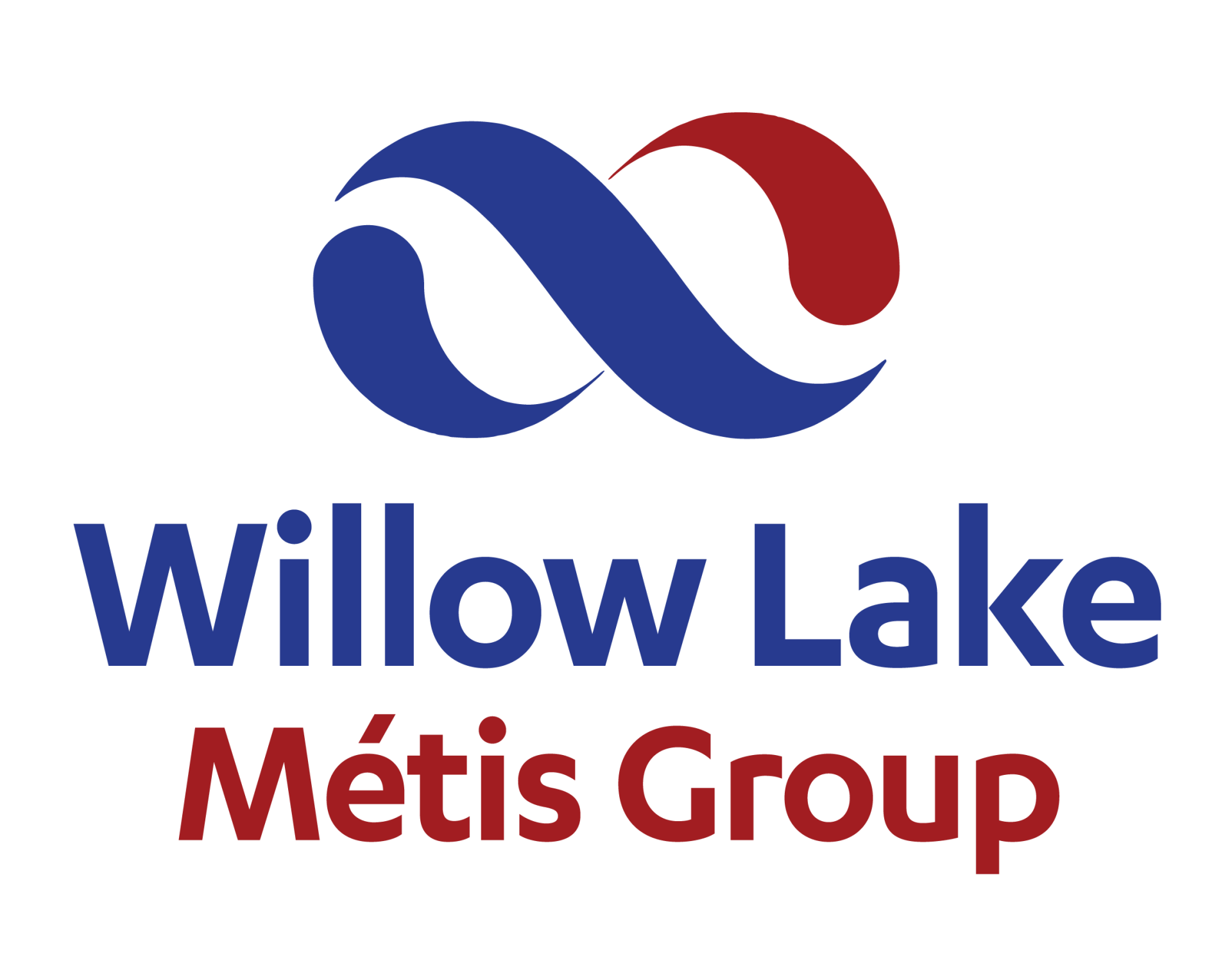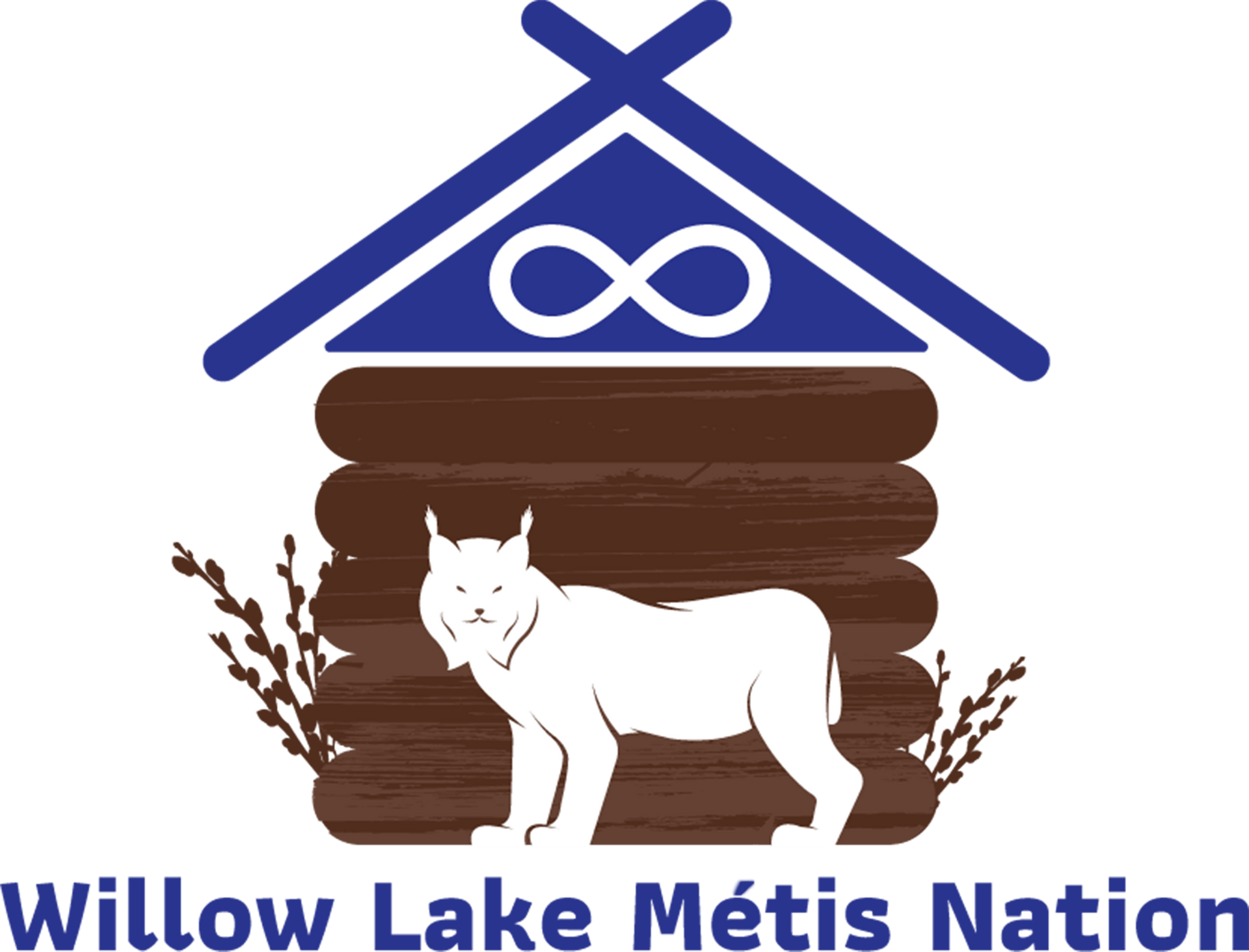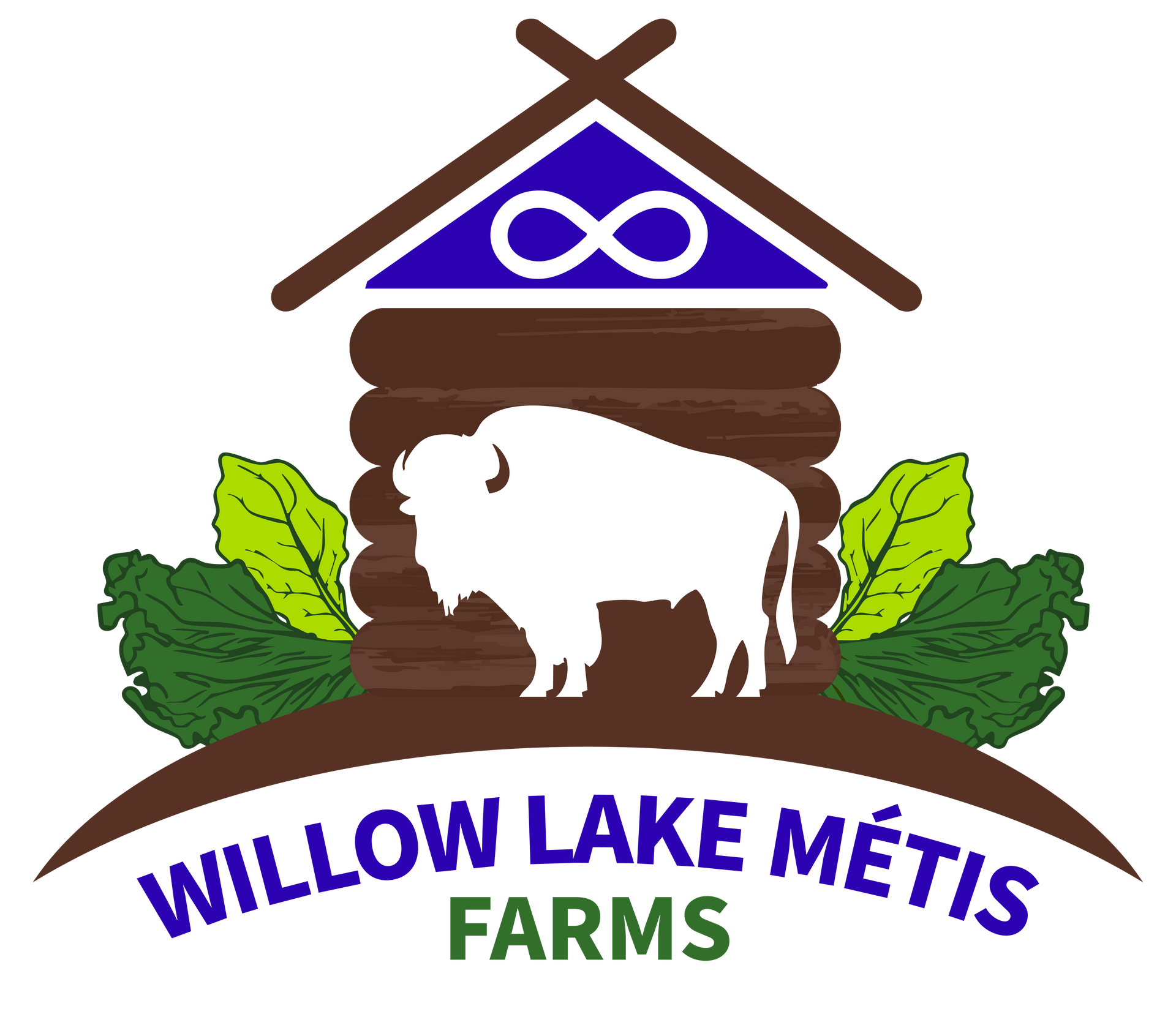The Indigenous, Environmental, Social, Governance (IESG) framework is a values-driven approach that centers Indigenous perspectives and priorities in shaping sustainable and equitable development. It goes beyond conventional ESG models by embedding Indigenous knowledge systems, cultural values, and community leadership at every level. Within this framework, educational programs play a vital role in the social dimension of IESG, fostering community capacity, cultural continuity, and youth empowerment. Willow Lake Métis Nation’s social supports tie back to IESG through:
- Empowerment & Self-Sufficiency: By providing job opportunities and skill development, individuals gain financial independence, reducing reliance on social assistance and enhancing their overall stability.
- Community Well-Being & Growth: When more Citizens are employed and trained, communities experience economic growth, leading to better housing, healthcare, and education opportunities.
- Cultural Identity & Inclusion: Employment and training programs can be designed to align with Métis and Indigenous values, ensuring that cultural identity is preserved and celebrated in the workforce.
- Stronger Social Networks: Workplace connections, mentorships, and training programs help build supportive social networks, reducing isolation and increasing a sense of belonging.
- Breaking Cycles of Unemployment: Training initiatives create pathways for long-term career success, helping future generations access better opportunities and reducing systemic unemployment.
Willow Lake Métis Nation’s Employment Programs
At Willow Lake Métis Nation, we are committed to supporting our Citizens in achieving their education, training, and career goals. Our employment and training programs provide financial assistance, skill development, and access to job opportunities to help individuals succeed in their chosen fields, including:
Employment Programs
- Post-Secondary Program: This program supports Citizens pursuing post-secondary education by providing funding for tuition, books, and essential academic resources.
- Trades and Field Training: This program equips Citizens with the necessary skills and certifications for employment in trades and construction. It covers the cost of safety and on-site construction tickets and provides personal protective equipment (PPE) to ensure workplace readiness.
Employment and Career Development
- Career Fairs & Job Opportunities: Willow Lake Métis Nation hosts two annual career fairs, connecting Citizens with potential employers and training opportunities.
- Workshops & One-on-One Support: We offer specialized workshops and individual sessions to help participants enhance their employability, develop career plans, and gain valuable industry insights.
By investing in education, training, and career development, we empower our Citizens to build sustainable futures while strengthening the economic foundation of our Nation.
Creating Networks: The Power of WLMN's Support in Job Training
The education, training, and employment programs offered by Willow Lake Métis Nation have a significant and lasting impact on individuals, families, and the broader community. These programs help bridge employment gaps, enhance career prospects, and strengthen the Nation’s economic future.
- Increased Employment Opportunities: By funding post-secondary education, trades training, and safety certifications, Citizens gain the qualifications and skills needed to secure stable, well-paying jobs.
- Career fairs and employer connections provide direct pathways to employment.
- Economic Growth & Self-Sufficiency: Supporting Citizens in finding employment reduces reliance on government assistance and increases financial independence.
- A well-trained workforce attracts industry partnerships and investment, creating more job opportunities within the community.
- Empowerment & Confidence: Access to education and training boosts self-esteem and motivation, helping individuals take charge of their career paths.
- One-on-one career support and workshops provide personalized guidance, ensuring participants feel supported in their journey.
- Stronger Community & Cultural Preservation: Economic stability allows Citizens to stay within their communities rather than seeking work elsewhere, preserving Métis culture and traditions.
- Employment success contributes to intergenerational benefits, inspiring younger generations to pursue education and meaningful careers.
- Workplace Safety & Industry Readiness: Providing personal protective equipment (PPE) and safety training ensures that Citizens enter the workforce prepared and protected, reducing workplace risks.
Overall, these programs strengthen individuals, families, and the Nation as a whole, fostering a prosperous and self-reliant Métis community for generations to come.
The Willow Lake Métis Nation's employment and training programs aim to enhance the economic well-being of its Citizens. While specific outcome statistics for these programs are not publicly available, broader data on similar initiatives provide insight into their potential impact:
- Higher Employment Rates with Education: In 2021, Indigenous individuals aged 25 to 54 with a bachelor's degree or higher had an employment rate of 86%, compared to 60% for those with only a high school diploma.
- Increased Earnings for Tradespeople: Male Indigenous journeypersons reported a median employment income of $71,100, approximately $7,000 higher than their non-Indigenous counterparts.
- Reduced Employment Gaps through Training: Programs like the Indigenous Skills and Employment Training (ISET) initiative aim to improve employment and earnings outcomes for Métis individuals, thereby reducing disparities between Métis and non-Indigenous populations.
These figures suggest that comprehensive employment and training programs, similar to those implemented by the Willow Lake Métis Nation, can lead to higher employment rates and increased earnings among participants. Such programs contribute to individual prosperity and the overall economic development of Indigenous communities.
Ongoing Support For Citizens
Standalone programs are a valuable starting point, but they cannot be the sole solution to addressing the complex and evolving needs of Citizens. To truly support individuals and foster long-term success, these initiatives must be part of an ongoing, integrated effort. Here’s why:
Sustained Support and Long-Term Impact
One-time programs may provide short-term benefits, but ongoing support is necessary to ensure that Citizens can sustain and build upon their progress. This includes continued access to training, career development, mentorship, and educational resources. Without this support, Citizens may face barriers that prevent them from fully utilizing the skills and opportunities they’ve gained.
Adapting to Changing Needs
Communities evolve, and so do the needs of Citizens. As industries change, new technologies emerge, and economic conditions shift, it’s crucial to offer ongoing training and development opportunities to keep up with these changes. A continuous learning environment ensures that Citizens remain competitive and adaptable in the workforce.
Building a Holistic Support System
Employment and training programs need to be integrated with other social services - such as childcare, housing support, mental health resources, and financial literacy training - to address the full range of factors that impact an individual’s success. Standalone programs may not consider these broader challenges, but an ongoing effort ensures Citizens have access to the comprehensive support they need to thrive.
Fostering a Culture of Empowerment and Self-Sufficiency
By offering consistent engagement through workshops, career coaching, networking opportunities, and mentorship, Citizens feel valued and empowered to take charge of their careers. The goal is to create a culture of lifelong learning and self-sufficiency, where Citizens are continually encouraged to grow and reach new milestones.
Community Building and Networking
Standalone programs often fail to foster a sense of community and connection among participants. However, ongoing efforts that include networking events, career fairs, and peer support groups can help Citizens form lasting relationships that contribute to their success. These connections often lead to collaborative job opportunities, mentorship, and community-wide growth.
Tracking Progress and Measuring Success
Ongoing programs allow organizations to track progress over time, making it possible to measure success, identify areas of improvement, and adjust strategies. This continual feedback loop is essential for ensuring that Citizens receive the support they need at every stage of their journey.
The Indigenous, Environmental, Social, and Governance (IESG) framework emphasizes the importance of long-term, sustainable practices that benefit Indigenous communities. When we consider employment and training programs within the context of IESG, it’s clear that ongoing support is critical for ensuring lasting success, economic empowerment, and community resilience. Here’s how this relates to the importance and impact of IESG:
Social Impact through Long-Term Support
The social aspect of IESG focuses on creating positive, lasting impacts on Indigenous communities. Standalone programs can offer short-term assistance, but the ongoing support necessary to foster community development, improve educational outcomes, and reduce employment gaps requires continuous effort. The success of employment and training programs relies on more than just providing initial training; it requires ongoing career support, mentorship, networking, and opportunities for advancement to truly uplift individuals in a meaningful way.
By adopting a long-term, integrated approach that includes consistent training and support, the IESG framework encourages holistic growth within Indigenous communities. This creates an environment where Citizens can not only secure stable employment but also continue to thrive and contribute to their community’s growth.
Governance and Sustainability
IESG places strong emphasis on governance and sustainability. For employment and training programs to be effective in the long term, they must be part of a well-governed, sustainable strategy. Standalone programs may fall short without an overarching governance structure to provide continuous funding, measure outcomes, and track progress. IESG supports transparent governance to ensure that these programs are effective, and that resources are continually directed toward meeting the evolving needs of Citizens.
Through this lens, ongoing efforts to support Citizens ensure that the programs remain sustainable, adaptable, and aligned with the goals of the community over time. It encourages Indigenous leadership to take ownership of these programs and direct them in ways that fit the unique needs of the community.
Environmental and Social Sustainability
The environmental aspect of IESG also ties into the sustainability of training and employment opportunities. For programs to be successful in the long run, they must not only focus on individual development but also take into account the community’s broader environmental context. Indigenous communities are deeply connected to their land, and training programs should incorporate environmental awareness, sustainable job practices, and eco-friendly industries.
Incorporating these elements into ongoing training helps ensure that new industries and job opportunities align with Indigenous values and respect for the land, creating sustainable careers that support the community without compromising the environment.
Community Empowerment and Self-Sufficiency
IESG aims to empower communities by focusing on social equality, fostering self-sufficiency, and promoting Indigenous leadership. Employment and training programs within the IESG framework should be designed to not only provide skills but also build confidence, self-esteem, and leadership potential.
Through ongoing engagement and development, these programs provide the tools for individuals to achieve long-term success while contributing to the broader social and economic development of their communities. This empowerment helps break cycles of dependency, which aligns directly with the social goals of the IESG framework.
In the context of IESG, standalone programs serve as a crucial starting point, but sustained, ongoing support is essential for achieving true success. IESG emphasizes the interconnectedness of social, environmental, and governance factors, and an ongoing approach to employment and training ensures that communities do not only benefit in the short term but continue to thrive in a sustainable, empowering, and culturally aligned manner for generations to come.




